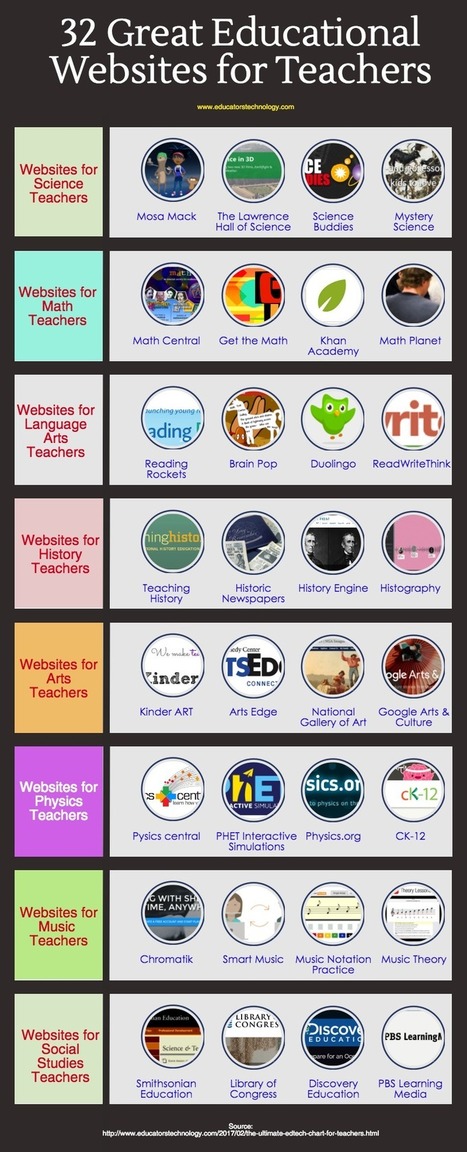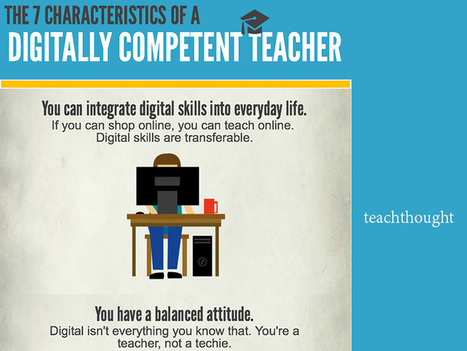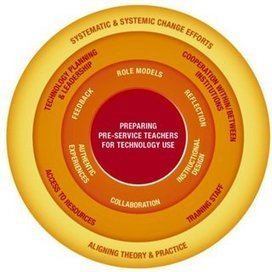Here is a handy infographic we have been working on for the last couple of days. We compiled 32 educational websites based on the Ultimate EdTech Chart we published a few months ago. We arranged these websites into 8 different categories and for each of these categories we came up with four websites that best represent the selected content area. The categories we have included are : websites for language arts teachers, websites for math teachers, websites for science teachers, websites for physics teachers, websites for history teachers, websites for social studies teachers, websites for arts teachers, and websites for music teachers. You can find links to the websites in this chart.
Via John Evans, Yashy Tohsaku, Juergen Wagner



 Your new post is loading...
Your new post is loading...
















